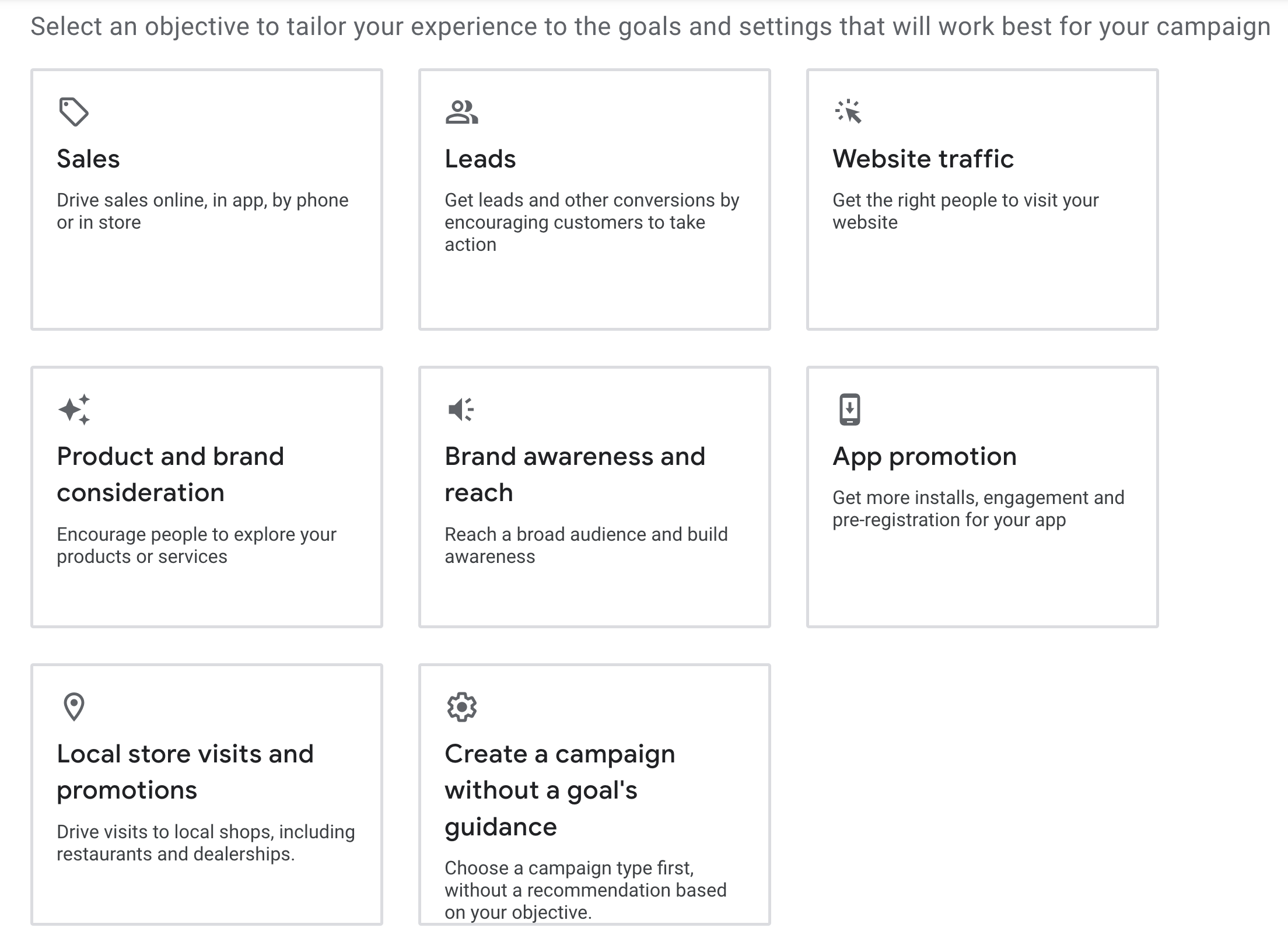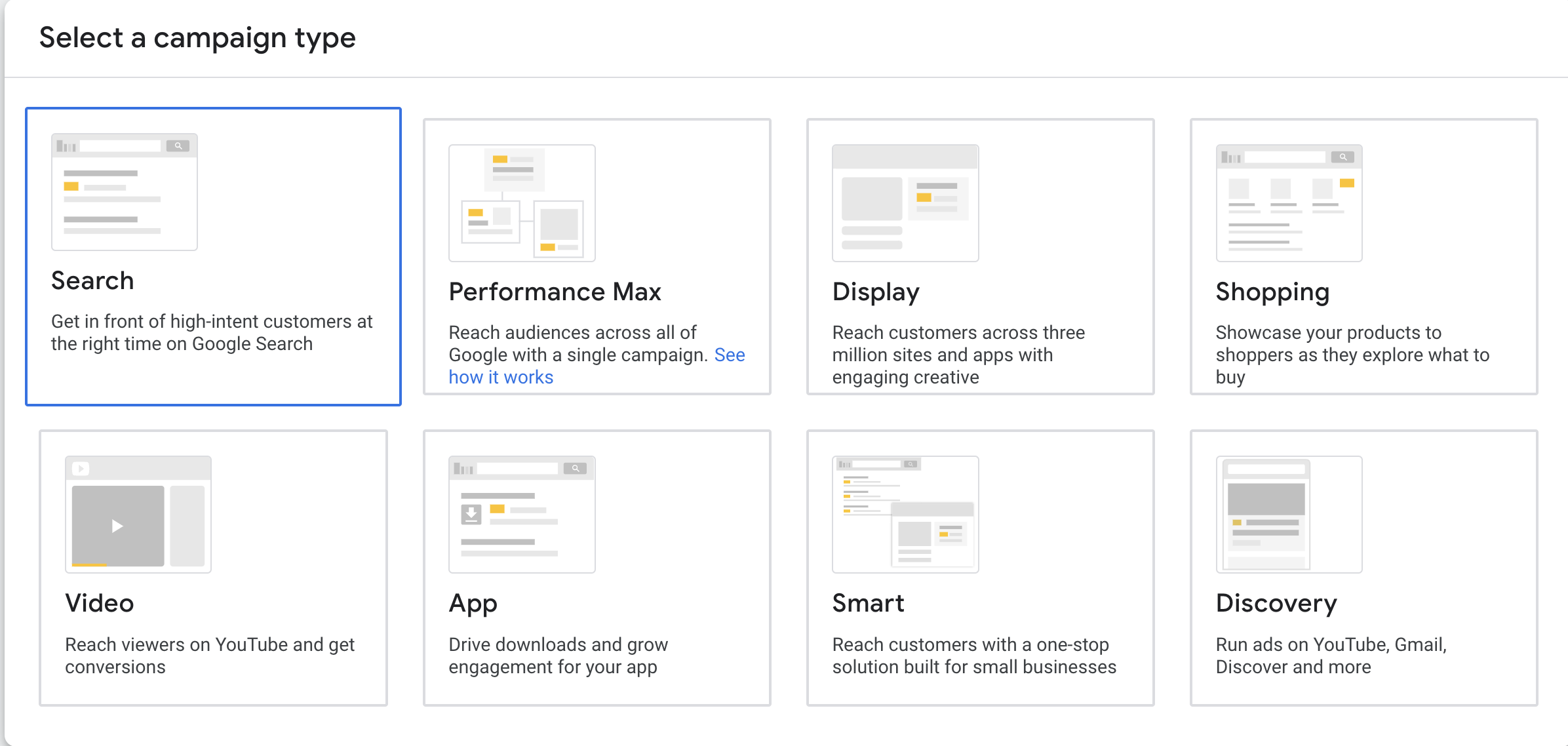Three factors before customising
Before the customisation, you must consider three factors:
Your keyword targeting. When creating keywords, you should put yourself in your consumers’ shoes. What then? You may try to search as a consumer from your viewpoint, and then you may be able to determine how to arrange your keywords.
Put your company objective at the core of your campaign. You should choose the purpose of the ad based on the goals: increase website traffic or increase product sales; you can also determine whether to use a broad match, phrase match, or other options.
Request Google to create your advertisements. The benefit is that Google can generate phrases you may not have thought about.
Which sort of match should you choose?
Currently, there are five options available. Match types include Broad match, Broad match modifier, Phrase match, Exact match, and Negative keywords. Consider them in the table below:
| Match type | ||
| Broad match | Symbol | No |
| Example | running shoes | |
| When to show | Customers search for: the exact keywords, misspellings, synonyms, or sentences which include keywords or keywords’ similar meanings. | |
| Goal | a wide audience; save keyword-creating time | |
| Broad match modifier | Symbol | +sample words |
| Example | +running shoes | |
| When to show | Customers search for: the exact keywords, close variations, or additional words before, after or between the keywords. | |
| Goal | narrowing to a much-targeted audience | |
| Phrase match | Symbol | ‘sample words’ |
| Example | ‘running shoes ‘ | |
| When to show | Customers search for: the exact keywords, additional words before or after the keywords, or variations replaced. | |
| Goal | narrowing to a specific type of product or service, but allowing searchers’ own detailed preference. | |
| Exact match | Symbol | [sample words] |
| Example | [running shoes] | |
| When to show | Customers search for: only the exact keywords, close variations, or prepositions added. | |
| Goal | Focus on one type of goods or service | |
| Negative keywords | Symbol | – |
| Example | -casual shoes | |
| When not to show | Customers search for: the keywords casual shoes. | |
| Goal | Avoid non-related clicks |
As a blogger, I may opt for the “Broad match modifier” rather than the default “Broad match” if I run a Google search campaign since I must balance my ad’s exposure and money. The phrase match or exact match is often employed by product and service providers, and the broad match usually entails many unrelated searches.
Lastly, while the campaign progresses, you must monitor performance. You may need to employ negative keywords if unrelated clicks occur to prevent them from happening again.





Leave a Reply
You must be logged in to post a comment.